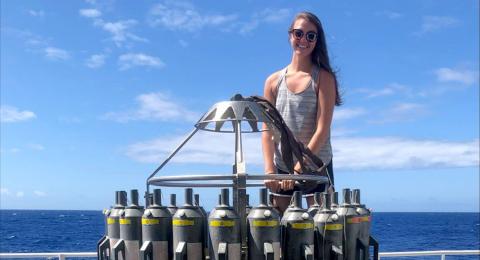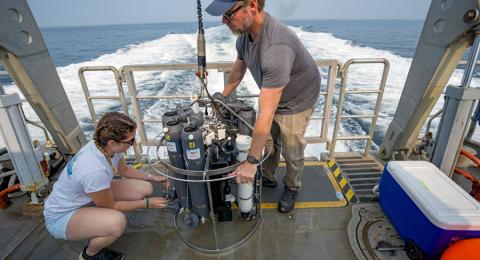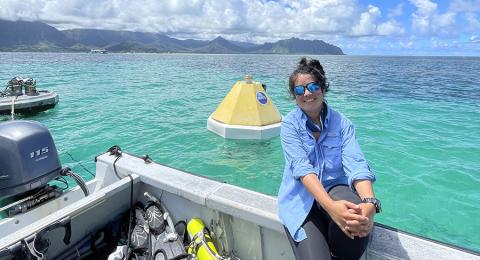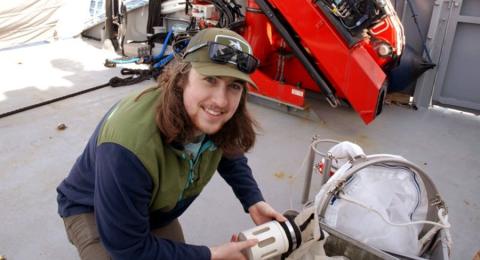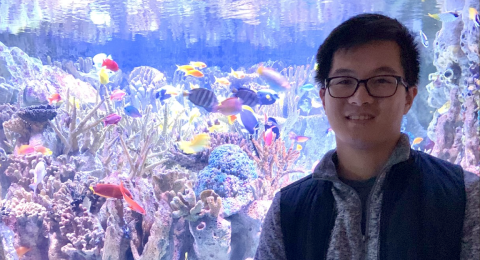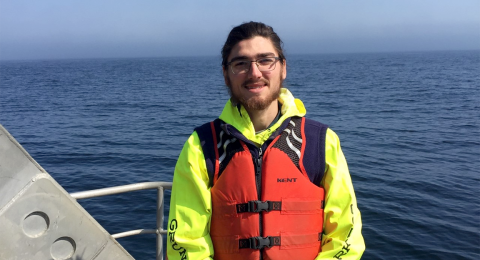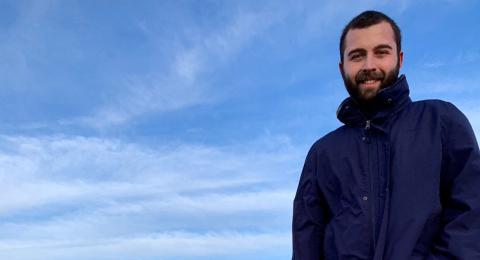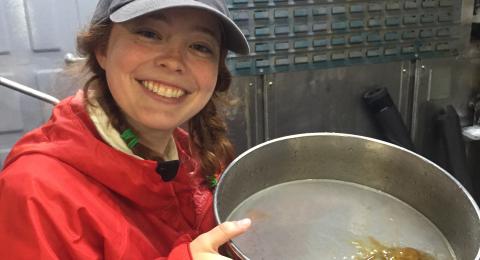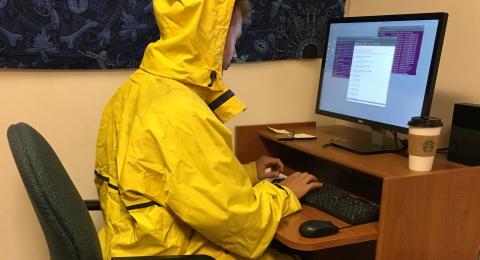Oceanography M.S. '21
Sarah is currently a Staff Scientist/Chemist at NewFields specializing in sediment management and marine services and working to reduce impacts of contaminants in marine environments. She feels her UNH experience at sea for two weeks post graduation aboard the R/V Kilo Moana …
Learn More
Oceanography M.S. '21
Kerry is a Macroalgal Curator at Bigelow Laboratory for Ocean Sciences in Maine working with incubator-grown seaweed. She finds this work especially important in today's climate because seaweed aquaculture is up-and-coming as a viable solution for a sustainable and regenerative food source.…
Learn More
Biogeochemical Oceanography M.S. '22
I was eager to get involved in research, so at the end of my freshman year of undergrad, I ended up reaching out to Dr. Robert Letscher who, at the time, was new to UNH as well.
Learn More
Oceanography Ph.D. '20
Melissa is currently a Postdoctoral Researcher at the University of Hawai’i at Manoa working on a high-frequency autonomous dual sensor to measure seawater total alkalinity and pH to evaluate metabolic processes in Hawaiian coral reef areas from in situ time series and process study data.
Learn More
Oceanography M.S. '20
John got his MS from UNH and is currently a Marine Ecotoxicology PhD student at the department of ecology, environment and plant sciences at Stockholm University. His research is on how cyanobacteria blooms in the Baltic Sea affect the growth of fish and their accumulation of toxins and…
Learn More
Constraining the global marine refractory dissolved organic carbon sources, sinks, and timescales
James’s research tests the dissolved organic carbon (DOC) cycling processes and mechanisms within the ocean biogeochemistry component (MARBL) of the Community Earth System Model in order to assess the carbon-climate feedback for future climate scenarios.
Learn More
Assessing the Gulf of Maine through acoustics and bio-optics
Terence’s research uses optical sensors and acoustics instruments as tools to understand marine physical-biological interactions in the Gulf of Maine.
Learn More
Spatial and Temporal Occurrence of Preformed Nitrate Anomalies in the Subtropical Ocean
Adam's research involves the use of data from biogeochemical Argo profiling floats to determine the reoccurence, spatial extents, and seasonality of preformed nitrate anomalies in the global subtropical ocean.
Learn More
Establishing Pteropods as a Biological Indicator for Ocean Acidification
Tyler's research focuses on ocean acidification in the waters off the East Coast of the United States. She's trying to establish the relationship between the temporal and spatial distribution of pteropod species to help assess the viability of pteropods for use as a biological indicator for OA.…
Learn More
Predicting Species Range Boundaries in the Coastal Ocean
Will’s research models the dispersal of populations of larval organisms in coastal waters. Understanding these patterns of dispersal helps us understand the role that currents play in establishing the range boundaries of species.
Learn More
